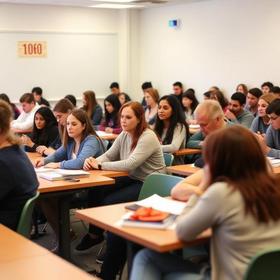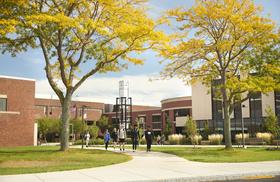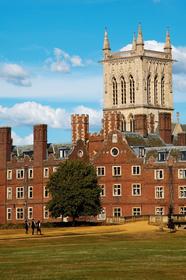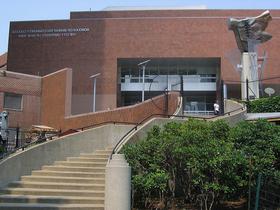The California community college system has been struggling financially for some time, with state funding cuts totaling more than $8 million since 2008. Schools have been forced to cut back to the bare bones, with some cutting classes and others raising fees. The passage of Proposition 30 this November promises some relief for those floundering institutions, and community colleges are wasting no time finding ways to spend the extra dollars they are slated to receive in order to provide students with more classes and services they need to succeed.
What is Proposition 30?
Proposition 30, also referred to as the Sales and Income Tax Initiative, was a proposal by California Governor Jerry Brown to raise revenue for various needs throughout the state. The twofold proposal raised the state sales tax from 7.25 percent to 7.5 percent, while also increasing income taxes for those making $250,000 or more. The increases were temporary, with the additional sales tax continuing for four years and the income tax increase slated for seven years. Of the revenues generated by the Sales and Income Tax Initiative, 89 percent would go directly to California public schools. The other 11 percent would be allotted to the state’s community college system. It is estimated that the bill would increase state revenue by $6 billion annually through 2017, and then by smaller amounts through 2019. According to the Los Angeles Times, that calculates out to around $210 million in additional funding for the community college system – funds that are badly needed by the hurting schools.
In this video, California Teachers Association President Dean Vogel speaks about the importance of Proposition 30 passing in the upcoming November election at CTA's 2012 Presidents Conference.
Prop 30 and California Community Colleges
The Los Angeles Times also reports that the additional funding will help the nine campuses in the Los Angeles Community College District avoid $30 million in funding cuts. Instead, the schools will be able to add around 200 classes this spring, which will make it easier for students in the district to get the classes they need and want.
“I’m guardedly optimistic that we’re beginning to find the bottom in California,” Brice Harris, chancellor of Los Angeles Community College District, told the Los Angeles Times. “We believe so goes California, so goes the country. This system is so large and so significant that we were fearful that if we weren’t able to stop the bleeding, it would begin to affect the country as a whole.”
The Los Angeles system launched a drive to register community college students to vote prior to the election, in hopes of passing Prop 30. The drive registered about 3,000 students who had a direct stake in the passing of the bill.
De Anza Community College Spared Mid-Year Cuts
De Anza College is just one of the institutions in the state celebrating the passage of Prop 30, according to La Voz. If the proposition had failed, the school would have been facing more than $5 million in mid-year cuts. While the school must still make cuts of around $2.8 million in its budget, the additional funding has saved some classes and allowed students to breathe a sigh of relief.
“It’s nice to know that the people still care about us students who are dealing with issues like fewer classes, fewer teachers, and fewer resources,” De Anza student Collin Haworth told La Voz. Other students agreed, saying if Prop 30 had failed, it would have made the community college experience more stressful and the competition for nearby four-year schools like UC and CSU more intense.
This video offers another take on the Proposition 30 issue.
Santa Monica and College of the Canyons Restoring Winter Session
For some community colleges, including Santa Monica College and College of the Canyons, the passage of Prop 30 brought restoration to a threatened winter session. The Los Angeles Times reports that Santa Monica College has been able to restore a full winter session that promises to attract at least 10,000 students to its campus right after the holidays. SVC News reports that College of the Canyons will also be offering a winter session, thanks to Prop 30, which will include around 100 online offerings.
Santa Monica College had previously announced it would have to cancel its winter session, with state funding cuts impacting its ability to operate. The school had also announced it would have to do away with its upcoming summer session due to financial restraints. In addition to funding from Prop 30, the school has received private donations that help make the winter session possible. The session will begin on January 2, and at least 250 for-credit classes will be offered.
College of the Canyons was also facing the cancellation of their winter session. Thanks to the additional funding through Prop 30, the school will now offer a full schedule, including the online class options. This school will receive more than $4 million of the allotted funding, which will pay for winter classes for interested students.
This video reports on Proposition 30 getting on the ballot.
Contra Costa College Gets Fiscal Aid
Contra Costa College was planning a spring semester around both the passage and defeat of Prop 30, according to a report at Accent Advocate. Fortunately, the college can offer a more robust spring schedule, thanks to the additional funding it expects to receive from Prop 30.
“We’ve cut every year for the last four years,” Susan Lee, dean of liberal arts, applied health, vocational education, and athletics for Contra Costa, told Accent Advocate. “We’ve been reducing – to be able to tell the faculty that we’re adding is great.”
While Prop 30 offers breathing room to community colleges throughout California, cuts still loom for some schools. The good news is students will enjoy many more classes next year with the additional funding Prop 30 brings.
Questions? Contact us on Facebook. @communitycollegereview















